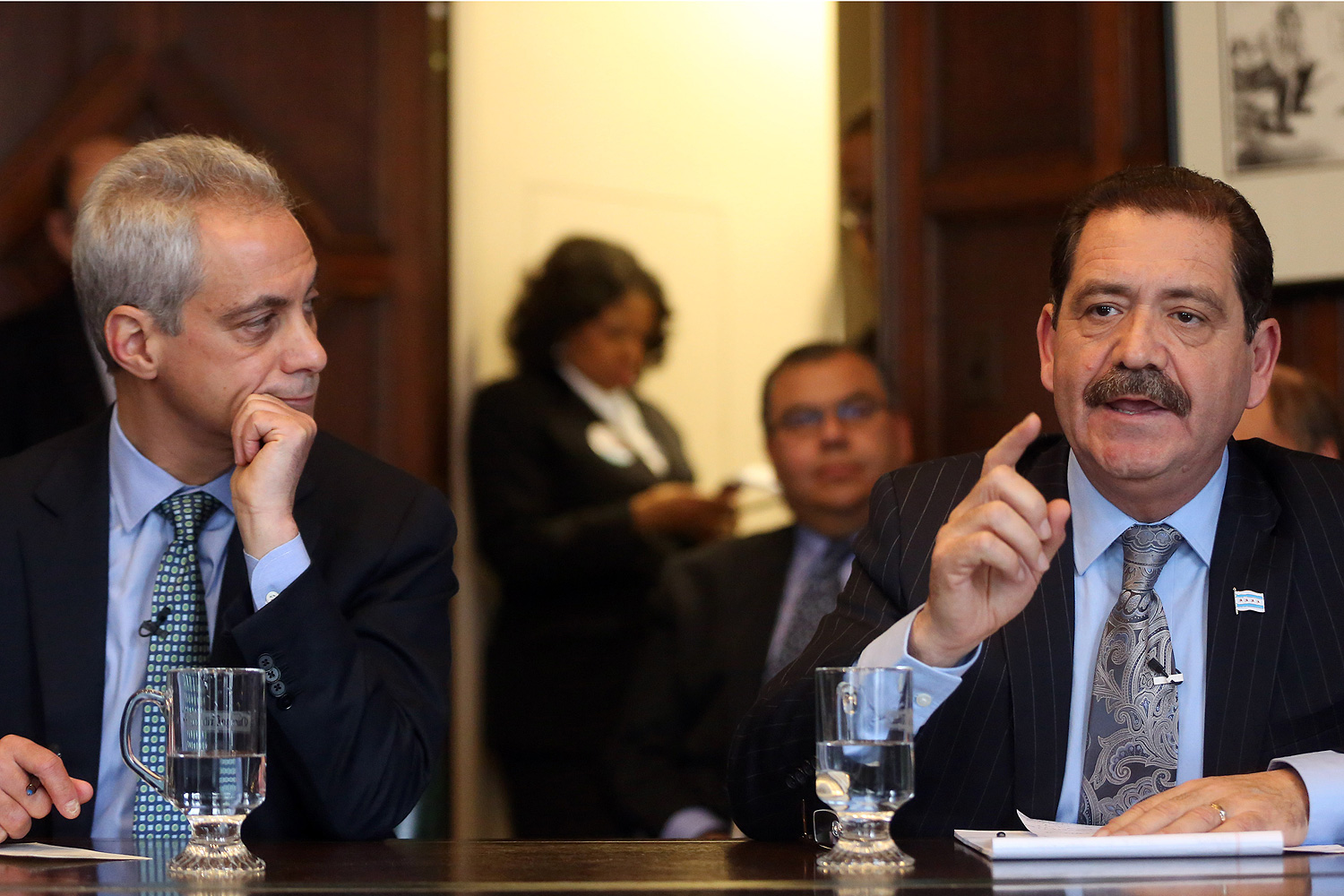Yesterday Mark Kirk weighed in on the mayoral election and caused a bit of a stir, mostly for this:
Rahm’s re-election is essential to maintaining the value of Chicago’s debt market. We need a strong capable leader… I would worry about the value of the Chicago debt if Rahm was not re-elected…. It’s a concern if we have some of the less responsible people running against him…. None of them could command the respect of the bond market. A collapse of Chicago debt, which already happened with Detroit, I think would soon follow if somebody who was really inexperienced and irresponsible replaced Rahm.
The specter of Detroit—invoked twice in the same editorial by the Tribune in qualified support of the mayor—raised some eyebrows as identity politics, including from former Chicago journalist Chris Hayes and journalists on a Headline Club panel about race and politics last night.
But I thought this was the more interesting signaling: "Kirk said Emanuel’s challenger lacks the 'gravitas with the bond market' to secure Chicago’s mountain of debt."
In other words, the bond market don't want nobody nobody sent.
Kirk's comment was somewhat ill-timed, given Moody's downgrade of the city's general obligation bonds to Baa2 last week, which mentions nothing about gravitas but a great deal about the city's pension debt. Nor does the rating bestow much favor upon the potential legal success of existing reforms: "The Baa2 GO rating incorporates expected growth in Chicago's already highly elevated unfunded pension liabilities and continued growth in costs to service those liabilities, even if recent pension reforms proceed and are not overturned in legal appeal."
Meanwhile, in Cook County—where Chuy Garcia is Toni Preckwinkle's floor leader—the Moody's rating has remained stable, and though its outlook is negative, there's praise for the government's financial stewardship: "Ongoing reform of the county financial operations mitigated the impact of a sizable revenue loss from rolling back the county's sales tax rate." That reform, which earned Preckwinkle a "public official of the year" honor from Governing in 2012, began with substantial cuts to county payroll.
More recently, the Civic Fed praised the Preckwinkle administration's attempts at pension reform, which made it through the county board (though not the state legislature) with substantial, if not universal, buy-in from local unions:
The pension reform package used a number of cost-reducing levers that had not been included in previous iterations of pension reform in Illinois. Some of these levers include reducing the annuity formula and downside protections that would protect the fund from future market downturns. The major downside adjustment would start in 2020 and apply a reduced accrual rate and suspend cost of living adjustments to retirees’ benefits if the fund falls below 60% funded. The reform package also includes higher employer and employee contributions and other benefit changes.
Granted, Garcia is the floor leader, not the executive. But it's still odd to hear him be described as "inexperienced" by Kirk, with stints at the city, county, and state levels in his long local political career. (Also said at the Headline Club panel: Emanuel is presented in the media as "smart," Chuy Garcia as "nice.")
But that's kind of the way it's been, ever since Garcia was a young alderman. In 1989, David Moberg wrote about money and power after Harold Washington's death in "The Fuel of a New Machine":
For example, Daley's biggest contributor is J. Paul Beitler, a major downtown developer. Beitler, a Republican who lives in Winnetka, thinks the downtown area owes nothing to the rest of the city. He refers to the city's neighborhoods as "the suburbs." He thinks the opening up of political debate that followed the election of Harold Washington has deterred international investors from participating in his big projects (despite evidence that the city is in the midst of one of the biggest downtown building booms in its history), and he sees Daley as returning the city to a period of "stability" much like the reign of his late father.
Beitler was not alone in his viewpoint.
In a survey conducted by Crain's Chicago Business, executives overwhelmingly favored Daley, but only 8 percent did so because they thought he would do a good job, 2 percent because he inspired confidence, and 1 percent because of his intelligence. More–roughly 25 percent on each count–were impressed with his experience, his origins with a political family, and his being "in tune with business." They backed him, the pollster concluded, because they think "Daley is one of us though we can't put a finger on why."
As Moberg pointed out, downtown was in the midst of "its biggest downtown building boom since the Great Fire." Gary Rivlin and Larry Bennett give Washington's administration credit for streamlining and modernizing the city's bureaucracy while substantially cutting the city's payroll. Nonetheless, it was Daley who represented "stability" while Washington's administration gave "a sense of Armageddon," according to one industry insider Moberg spoke to.
Chicago has evolved (unlike Detroit) from an industrial into a financial powerhouse, and political power here has followed, as the levers of power have moved on up. But that old sense of "we don't want nobody nobody sent" remains.



